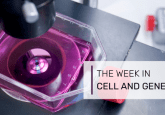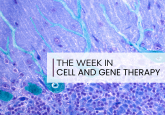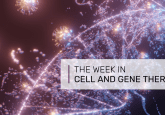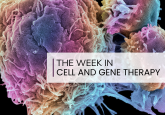Cell therapy weekly: Prescient unveils platform for better CAR-Ts
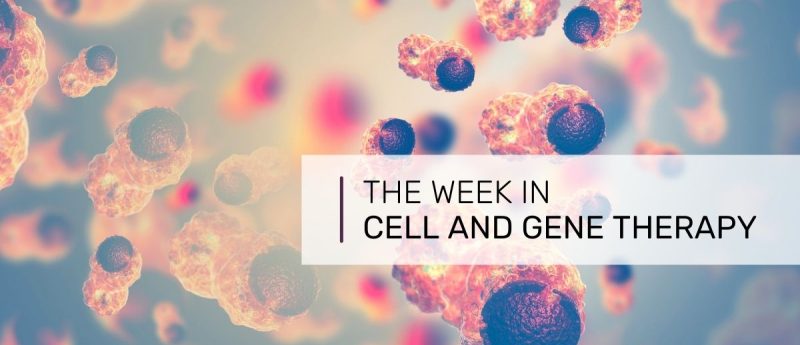
This week, Prescient Therapeutics (Melbourne, Australia) unveils platform for more durable and effective Car-Ts, Invetech (Melbourne, Australia) announces expansion into turnkey manufacturing systems and hope for multiple sclerosis (MS) with positive news for fibroblast-based therapy.
The news highlights:
Prescient unveils platform for better CAR-T
Prescient Therapeutics has unveiled a new platform aimed at enhancing CAR-T cell performance. CellPryme-M has been shown to produce cells less prone to exhaustion, leading to more durable activity and tumor penetration compared with conventionally produced CAR-T cells. By down-regulating genes associated with cell metabolism and protein folding, and up-regulating cells associated with interferon and cytokine signaling, cells are pushed to particular phenotypes, namely central memory and helper T cells.
Commenting on the announcement, Prescient’s Senior Vice President of Scientific Affairs, Dr Rebecca Lim, explained, “This GMP grade product can be easily incorporated into any CAR-T manufacturing program to significantly boost the cancer killing ability of T cells by skewing their phenotype to a less differentiated state. CellPryme-M alters key signaling pathways within as little as 15 minutes […and] I can see enormous potential for CellPryme-M to benefit those third-party CAR-T programs that have struggled with getting good persistence and tumor penetrance with their CAR T cells.”
Invetech announces expansion into turnkey manufacturing systems
Expanding on their current offering of custom cell and gene therapy manufacturing solutions, Invetech has announced the availability of turnkey, “ready-to-run” systems will shortly be available. It is hoped that these standalone, closed systems will reduce manufacturing costs and need for expert human operators, and enable smooth transition from small to larger scale.
“With the rapid acceleration of cell and gene therapies, the industry is in need of highly effective, efficient and scalable technologies that can rapidly grow with the therapies’ development and commercial evolution,” said Andreas Knaack, Invetech’s President. “As an invested healthcare innovation partner with almost 20 years of history in automating the production of cell and gene therapies, our new offering of ready-to-run turnkey cell therapy systems represents Invetech’s contribution to making life-saving therapies accessible to more patients at higher pace.”
Hope for MS with positive news for fibroblast-based therapy
FibroBiologics (TX, USA) has presented Phase 0/I data in their trial of single-dose infusion of tolerogenic human dermal fibroblasts (HDFs) for MS at 2022 Consortium of Multiple Sclerosis Centers Annual Meeting (June 1-4, MD, USA). MS is an autoimmune disorder that leads to progressions cognitive and sensory impairment; in the trial, administration of HDFs in four patients with relapsing-remitting MS and one patient with secondary progressive resulted in Treg-dependent disease inhibition that was significantly better than that achieved with adipose or bone marrow-derived MSCs.
“Tolerogenic HDFs are capable of suppressing pathogenic T cell activation, stimulating T regulatory (Treg) cell expansion, inhibiting dendritic cells (DC) maturation, stimulating oligodendrocyte expansion and myelin protein expression, as was evidenced by our in vivo studies,” said Dr. Hamid Khoja, Chief Scientific Officer at FibroBiologics. “While we are excited about the promise of HDFs, we understand that further studies are required, and to that end, FibroBiologics is in the process of submitting an IND application to the US FDA to study the safety and efficacy profile of various concentrations of HDFs and the impact of multiple-dose infusions over an eighteen-month study period.”
New validated iPSCs could help improve drug discovery
Human iPSC-derived ventricular cardiomyocytes from Axol Bioscience, Ltd. (UK) have undergone comprehensive in vitro pro-arrhythmia assay (CiPA) validation, demonstrating their utility as a robust cardiac model for drug discovery and screening. CiPA, launched by the US FDA, is a working group to assess the use of iPSC-derived cardiomyocytes to reproduce cardiotoxicity, subjecting cells to a battery of tests assess their reaction to 28 compounds known to be cardiotoxic. The cells tested here are manufacturing at scale using using ISO 9001-accredited quality management systems, providing a reliable and consistent supply of cells for toxicity assays.
Professor Godfrey Smith, CSO, Clyde Biosciences (UK), commented: “As a core member of the CiPA initiative, we’re pleased to have supported Axol’s cell development and helped the team assess the performance of its cardiomyocytes. Having run the CiPA protocol on Clyde’s proprietary CellOPTIQ platform, and provided analysis and interpretation of the data, we confirm our data indicates that Axol’s cardiomyocytes meet the requirements for predictive in vitro pro-arrhythmia screening.”
You might also like:
